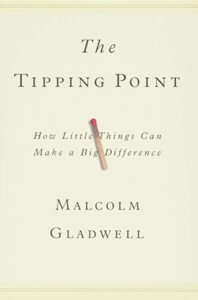|

|
The Tipping Point:
There is a simple way to package information that, under the right circumstances, can make it irresistible. All you have to do is find it.
|
132 |
|
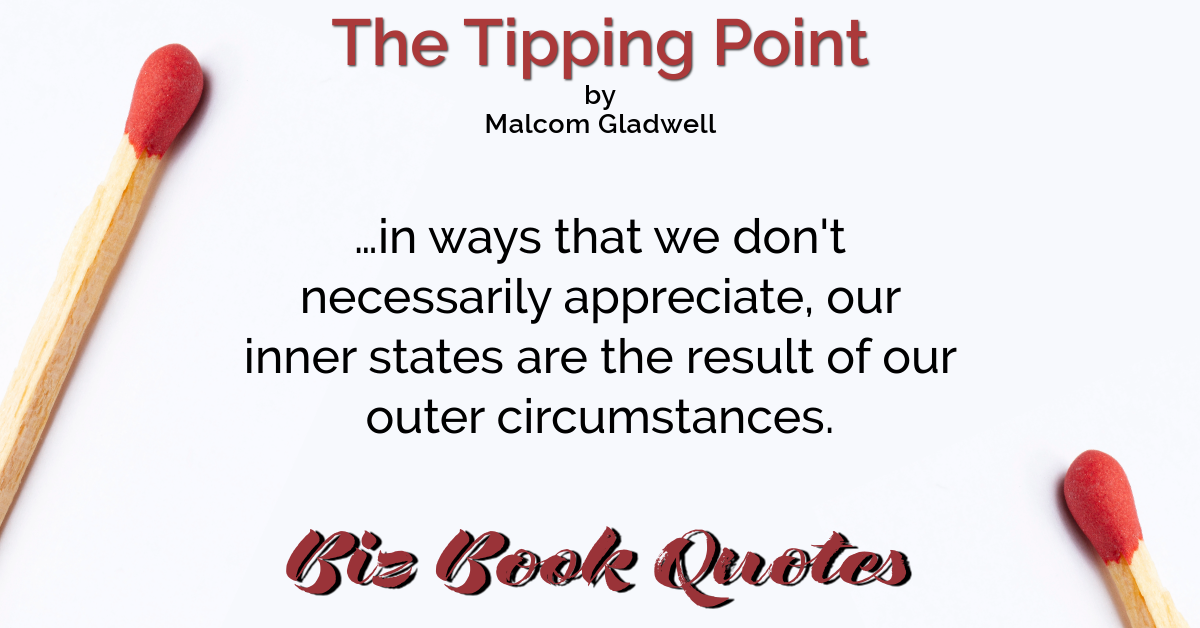
|
The Tipping Point:
…in ways that we don’t necessarily appreciate, our inner states are the result of our outer circumstances.
|
152 |
|

|
The Tipping Point:
All of us, when it comes to personality, naturally think in terms of absolutes: that a person is a certain way or is not a certain way.
|
158 |
|
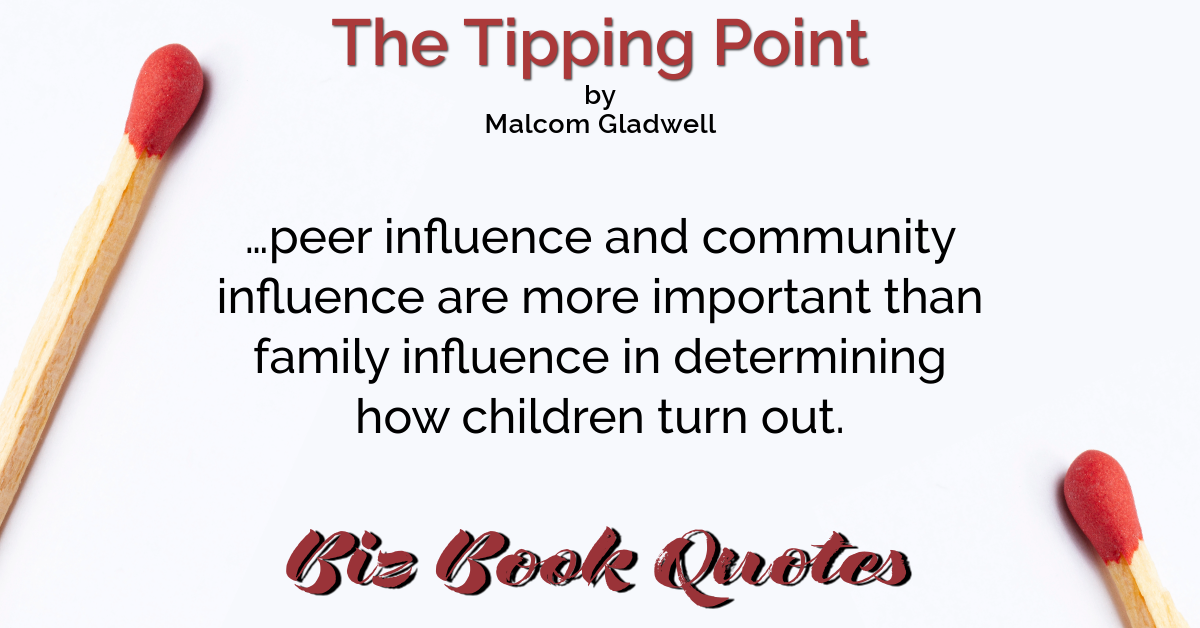
|
The Tipping Point:
…peer influence and community influence are more important than family influence in determining how children turn out.
|
167 |
|
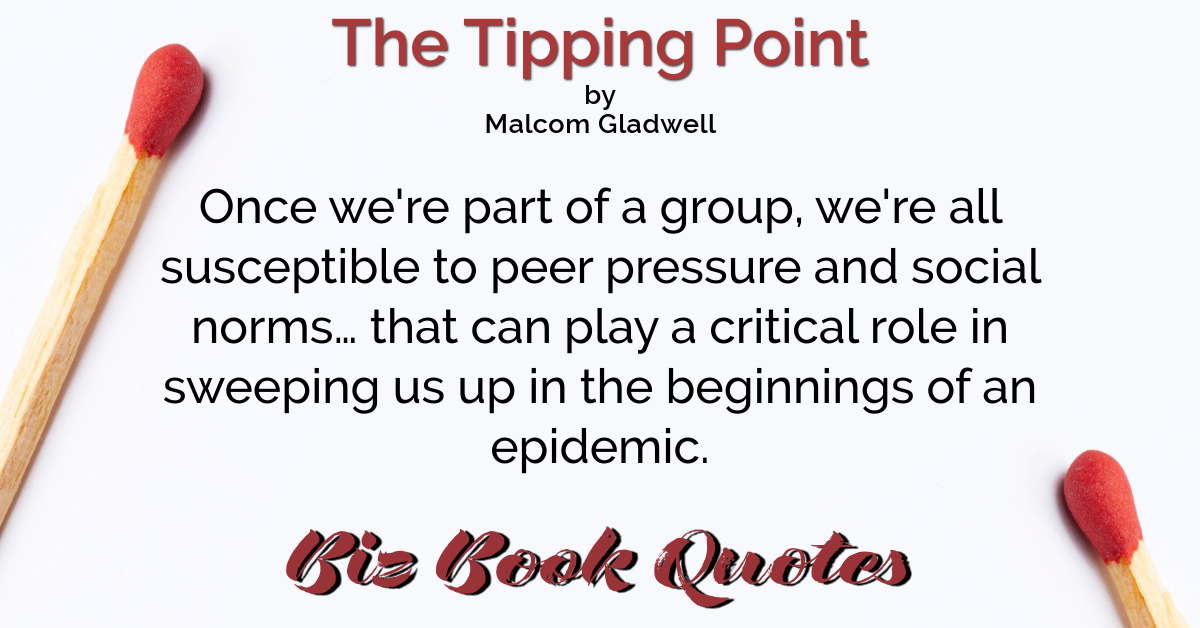
|
The Tipping Point:
Once we’re part of a group, we’re all susceptible to peer pressure and social norms… that can play a critical role in sweeping us up in the beginnings of an epidemic.
|
171 |
|
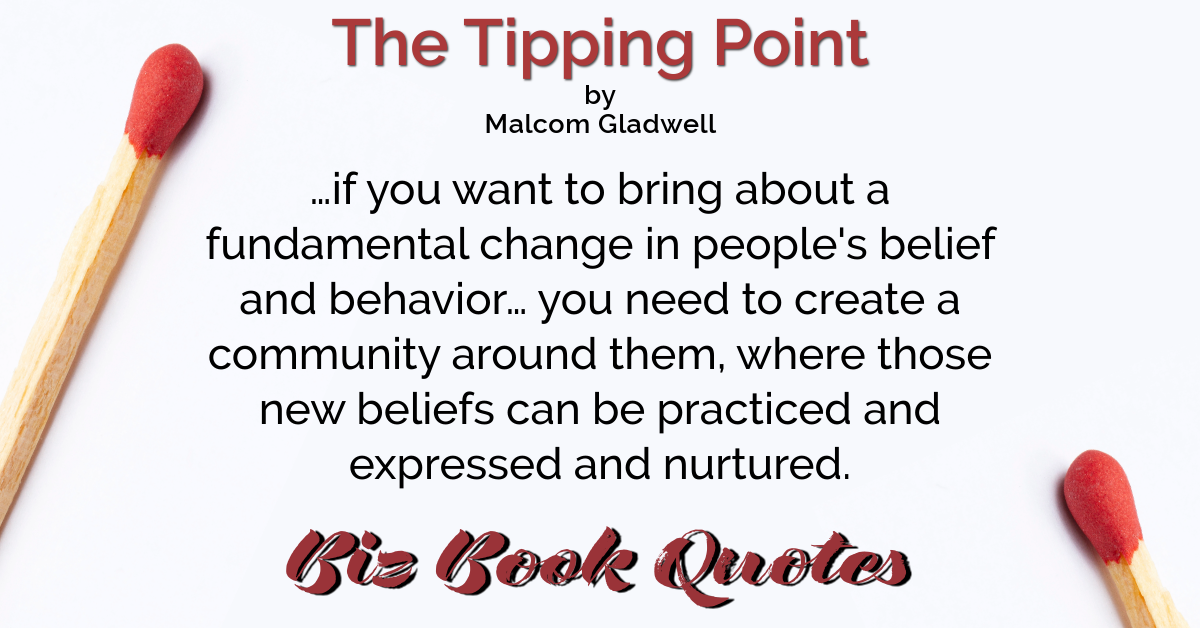
|
The Tipping Point:
…if you want to bring about a fundamental change in people’s belief and behavior… you need to create a community around them, where those new beliefs can be practiced and expressed and nurtured.
|
173 |
|
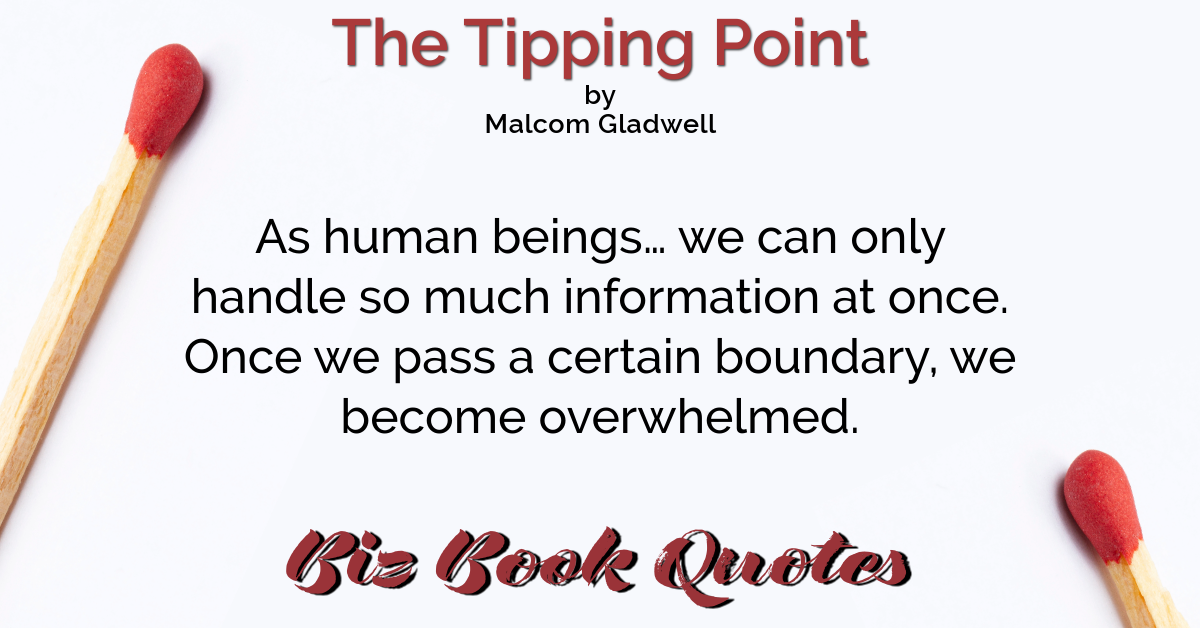
|
The Tipping Point:
As human beings… we can only handle so much information at once. Once we pass a certain boundary, we become overwhelmed.
|
176 |
|

|
The Tipping Point:
Above the 150 Tipping Point, there begin to be structural impediments to the ability of the group to agree and act with one voice.
|
182 |
|
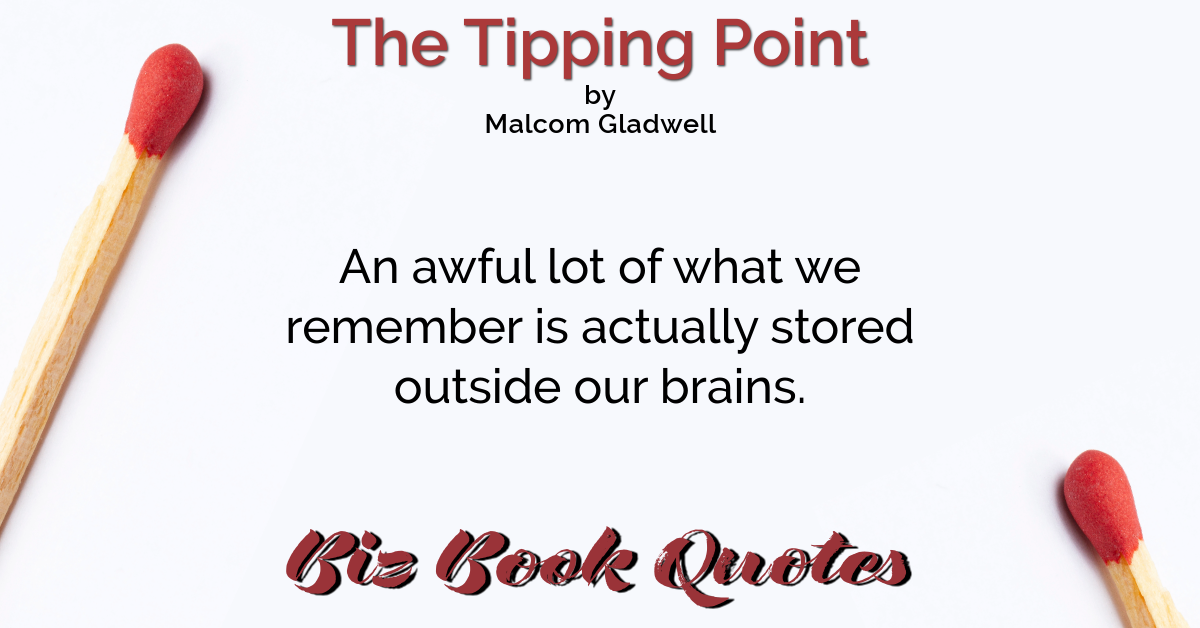
|
The Tipping Point:
An awful lot of what we remember is actually stored outside our brains.
|
188 |
|
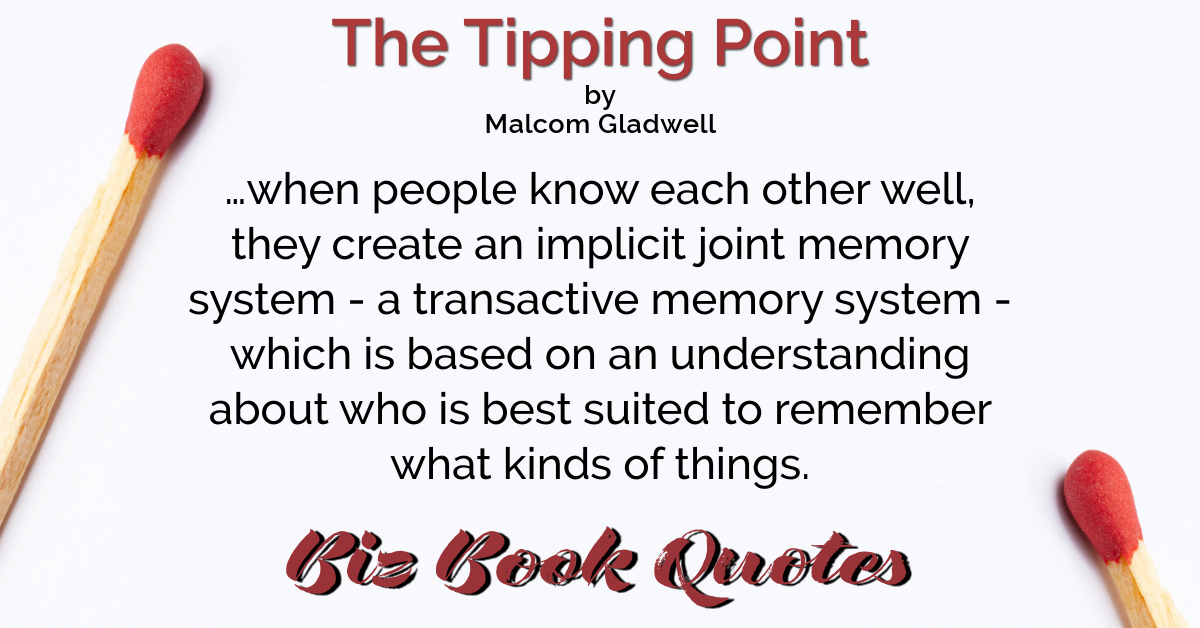
|
The Tipping Point:
…when people know each other well, they create an implicit joint memory system – a transactive memory system – which is based on an understanding about who is best suited to remember what kinds of things.
|
188 |
